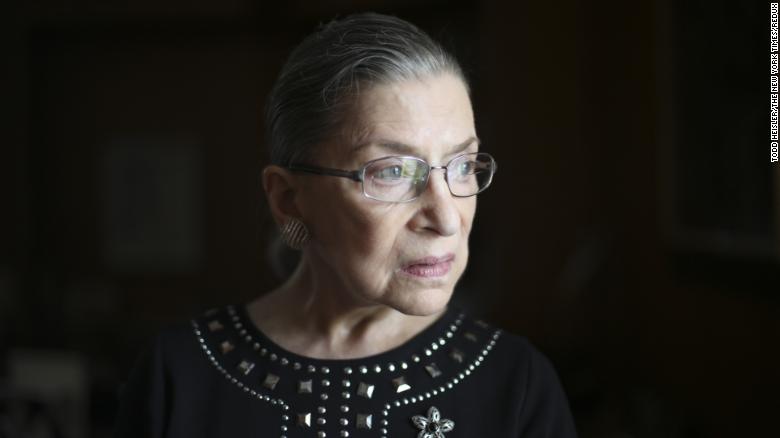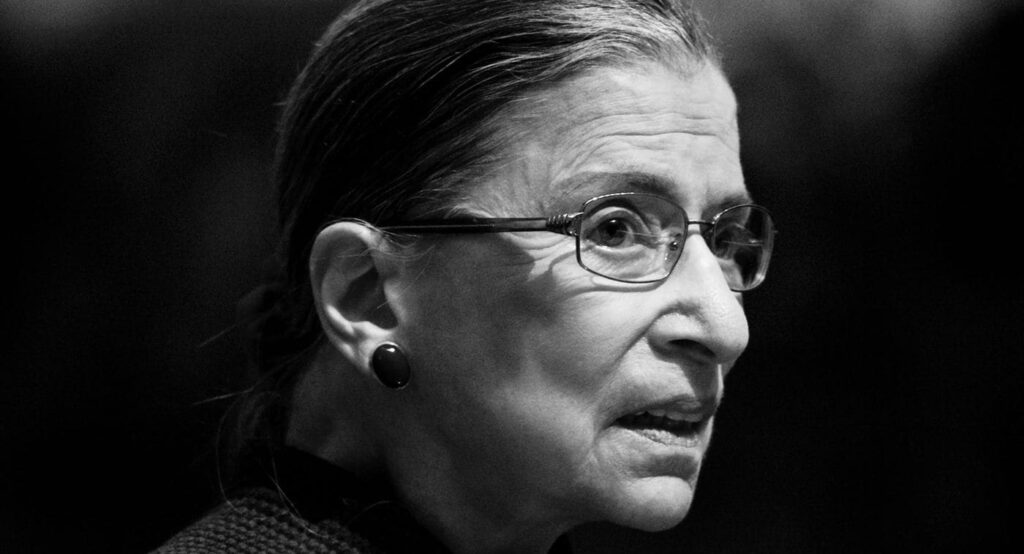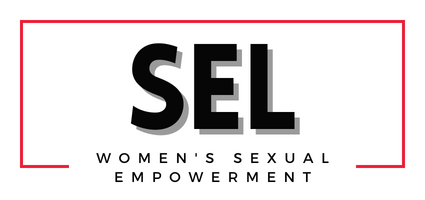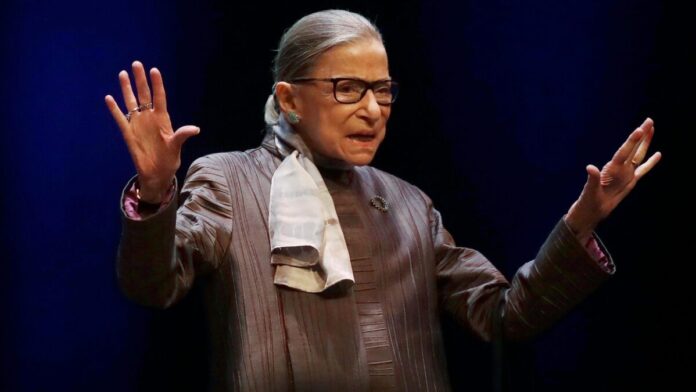Ruth Bader Ginsburg is Dead at 87
The news dropped just hours ago, and spread like the wildfires ravaging the west coast. Supreme Court Justice Ruth Bader Ginsburg is dead at 87. Just as many of us were basking in the much needed arrival of rains in the PNW–and enjoying the first gasps of fresh air in over a week–the wind was knocked out of us again.
Justice Ginsburg was (and is) a feminist icon who was considered by many to be a candle in the long, dark night of the Trump presidency. A presidency that robbed America of its decency and soul.
Serving as the most senior member of the liberal wing of the Supreme court, Ginsburg always delivered progressive votes on the most important and divisive social issues siding always with the vulnerable and at risk. These issues included abortion rights, same-sex marriage, voting rights, immigration, health care and affirmative action. Throughout her career she became a hero to the progressive masses and was dubbed “the Notorious R.B.G.”.
Ginsburg battled five bouts of cancer with her most recent reoccurrence in 2020. Her death leaves the possibility that Trump will have the opportunity to replace her with a conservative Supreme Court Justice solidifying a 6-3 conservative majority on the nine-person bench (the justices serve for life). Let’s not forget, Trump appointed rapist Brett Kavanaugh. This could change the court’s directions for years to come and put the rights of many at risk once again.

Mourning the Loss of a True American Hero
Ruth Bader Ginsburg’s death is mourned by many for a multitude of reasons. Her accomplishments are vast, and each improved the lives of others. They include the following:
- She paved the way for women by fighting sexism throughout law school (from both her professors and students) and becoming the first person on both the Harvard and Columbia Law reviews.
- She became the second female law professor at Rutgers where she fought for equal pay.
- She co-founded The Women’s Right’s Law Reporter: the first law journal to focus exclusively on women’s rights.
- Ginsburg became the first tenured female Columbia Law School professor.
- In 1972, she co-founded the Women’s Rights Project at ACLU (American Civil Liberties Union).
- R.B.G was the first female Jewish Supreme Court Justice.
- Ginsburg expanded her fight to end sexual discrimination to include LGBTQ rights and she She was the first justice to officiate a same-sex marriage.
- She Fiercely supported a woman’s rights to an abortion.
Justice Ginsburg’s Dying Wish
Finding out Ruth Bader Ginsburg is dead, has brought to life some of our worst fears. But the being the feminist icon that she is, she made one last move to preserve all that she has fought for and what integrity America has left. Just days before she passed, Ginsburg dictated the following statement to her granddaughter Clara Spera: “My most fervent wish is that I will not be replaced until a new president is installed.”
Will her last wish be honored? Only time will tell. R.B.G fought a good fight. She did all that she could during her time on this earth, and now it’s time for the rest of us to step it up and to do the best we can to make take America back.
2020 has been long, awful and hard. Many of us are emotionally spent and feel the fight going out of us. So let me leave you with some inspiration from one of the biggest badasses I know: R.B.G herself. The following are some of her greatest quotes. Soak em’ up and then get out there and protest, speak out…and VOTE TRUMP OUT.

Ruth Bader Ginsburg Quotes
“My mother told me to be a lady. And for her, that meant be your own person, be independent.” — Interview with Nina Totenberg
“The decision whether or not to bear a child is central to a woman’s life, to her well-being and dignity. It is a decision she must make for herself. When the government controls that decision for her, she is being treated as less than a full adult human responsible for her own choices.” — 1993 Senate Confirmation Hearings
“Women will have achieved true equality when men share with them the responsibility of bringing up the next generation.” — The Record Vol. 56 No. 1, Winter 2001
“So often in life, things that you regard as an impediment turn out to be great, good fortune.” — Makers interview, 2012
“People ask me sometimes, when—when do you think it will it be enough? When will there be enough women on the court? And my answer is when there are nine.” — Georgetown Law School, 2015
“I wish there was a way I could wave a magic wand and put back when people were respectful of each other and the Congress was working for the good of the country and not just along party lines. Someday there will be great people, great elected representatives who will say, ‘enough of this nonsense, let’s be the kind of legislature the United States should have.’ I hope that day will come when I’m still alive.” —Stanford Law School, 2017
“Dissents speak to a future age. It’s not simply to say, ‘my colleagues are wrong and I would do it this way,’ but the greatest dissents do become court opinions.”— From an interview on Live with Bill Maher
“[W]hen I’m sometimes asked when will there be enough [women on the supreme court]? And I say ‘When there are nine.’ People are shocked. But there’d been nine men, and nobody’s ever raised a question about that.” — Ruth Bader Ginsburg in an interview with 10th Circuit Bench & Bar Conference at the University of Colorado in Boulder, via CBS News
“Dissents speak to a future age. It’s not simply to say, ‘my colleagues are wrong and I would do it this way,’ but the greatest dissents do become court opinions.”— From an interview on Live with Bill Maher
“I’m dejected, but only momentarily, when I can’t get the fifth vote for something I think is very important. But then you go on to the next challenge and you give it your all. You know that these important issues are not going to go away. They are going to come back again and again. There’ll be another time, another day.” — via The Record
“Feminism … I think the simplest explanation, and one that captures the idea, is a song that Marlo Thomas sang, ‘Free to be You and Me.’ Free to be, if you were a girl—doctor, lawyer, Indian chief. Anything you want to be. And if you’re a boy, and you like teaching, you like nursing, you would like to have a doll, that’s OK too. That notion that we should each be free to develop our own talents, whatever they may be, and not be held back by artificial barriers—manmade barriers, certainly not heaven sent.” — In an interview with Makers




